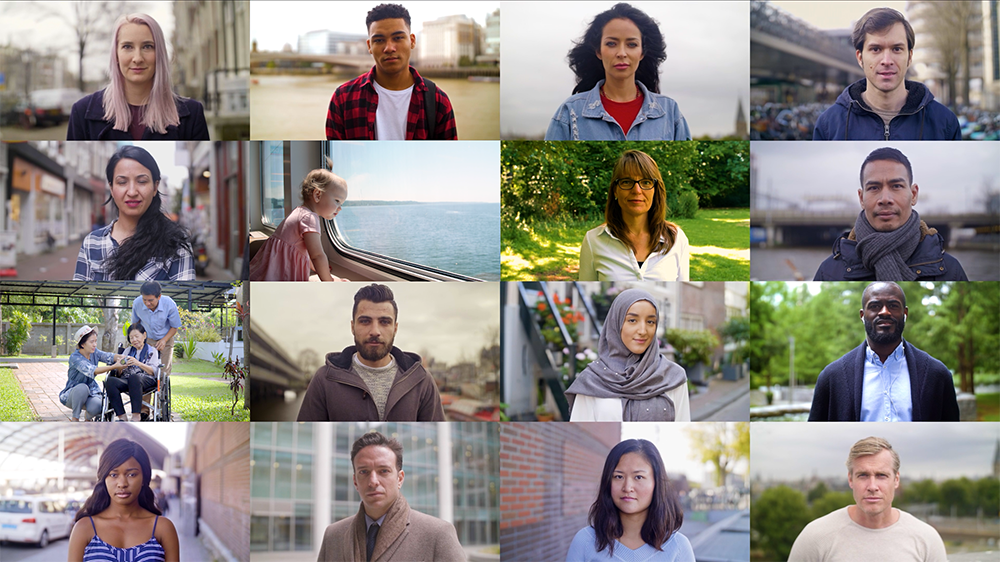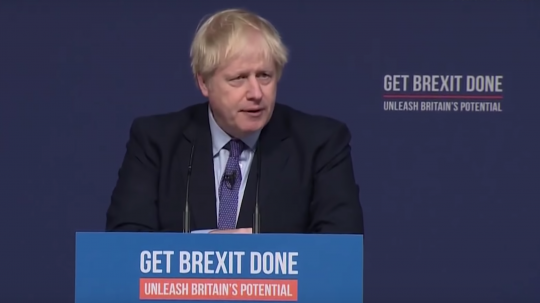An overwhelming majority of people living in the UK believe human rights laws must protect everyone equally to be effective, an opinion poll commissioned by charity EachOther has found.
The findings come amid the final days of a general election campaign in which parties have clashed over their positions on human rights.
EachOther, formerly known as RightsInfo, has published these “encouraging” results on Human Rights Day (10 December) – but warns that “we cannot be complacent”.
88 percent of people surveyed agree with the statement that “rights, laws and protections must apply to everyone equally” in order to be effective – a 10 percent increase on four years ago. Only seven percent of respondents disagreed with this idea, down from 11 percent in 2015.
It is really encouraging to see a growing strength of feeling that human rights must apply to everyone equally if they are to be effective at all.
– EachOther Interim Chief Executive Sarah Wishart
Support for universal human rights appears to be high no matter which of the leading parties those surveyed intend to vote for on Thursday.
It is strongest among the Greens (100 percent), Lib Dems second (95 percent) and the SNP third (92 percent). Labour and Conservative voters are in joint fourth place (91 percent), and the Brexit Party is last at 86 percent.
“It is really encouraging to see a growing strength of feeling that human rights must apply to everyone equally if they are to be effective at all,” said EachOther Interim Chief Executive Sarah Wishart.
“But, we cannot be complacent. It is well-documented that we are living in divided times: from the increasing reports of hate crimes to the polarisation of our national politics in the wake of Brexit.
“In spite of these divisions, the UK’s view on human rights is clear: unless they protect all of us, they protect none of us.”
The results of the poll, conducted by pollster Survation, are based on the views of more than 2,000 people in what is the first major test of public opinion on the UK’s human rights laws in four years.
The last poll was commissioned by Amnesty UK in 2015 and found that 78 percent of the UK public believes that effective human rights laws must apply to everyone.
“For 20 years there have been regular attacks on the Human Rights Act – but it appears that universal human rights are more, not less, popular.
– Adam Wagner, barrister and chairman of EachOther
The findings come days before the UK heads to the polls to elect its next parliament.
Several parties – including Labour, the Lib Dems, the Greens, Plaid Cymru and the Scottish National Party – have pledged in their manifestos to protect the Human Rights Act.
The Conservative Party has pledged to update the Act to ensure a “proper balance between the rights of individuals, our vital national security and effective government”.
It has also said it would ensure that judicial review – the means through which the courts assess the lawfulness of decisions made by public authorities, often in relation to human rights – is “not abused to conduct politics by another means or to create needless delays”.
The latest pledge marks a change from four years ago, when the party promised to scrap the Act to replace it with a “British Bill of Rights”.
But concerns have been raised about the lack of detail in the Conservatives’ proposals and the scope for our protections to be watered down.
PM Boris Johnson has also vowed to rewrite human rights laws in the wake of the London Bridge attacks in which Jack Merritt, 25, and 23-year-old Saskia Jones were killed.
Adam Wagner, barrister and chairman of EachOther, said: “For 20 years there have been regular attacks on the Human Rights Act – but it appears that universal human rights are more, not less, popular.
“This shows that the truth is coming through that human rights are good for everyone.”
Calls To ‘Stand Firm’ On The Human Rights Act
An open letter signed by more than 100 charities and human rights campaigners, is calling on all parties to “stand firm” in ensuing the Human Rights Act remains “an integral part” of the UK’s constitutional arrangements and people’s everyday lives.
Reacting to the poll, Ali Harris, chief executive of human rights charity Equally Ours, said: “Human rights are based on our shared values in the UK, so it’s no surprise that in these divided times the public recognise the need for human rights for everyone, now more than ever.
“The fact that 88 percent of people believe human rights must apply equally to us all shows clearly that people care more about human rights than many politicians think.”
Nadia O’Mara, Policy and Campaigns Officer at Liberty, added: “These results show a strong understanding among people in the UK of our rights protections and why they must be accessible and open to all of us.
“The Human Rights Act has helped countless people defend and uphold their rights. Any new attempt to undermine how people can use it would be met with fierce resistance.”
Sanchita Hosali, Director of the British Institute of Human Rights, also welcomed the poll findings.
“We meet 1,000s of people each year who are proud that our law to protects everyone’s human rights. From Lincolnshire to Glasgow, Leeds to Cardiff, and everywhere in between, we enable people to better understand and use the Human Rights Act in everyday ways outside the courts,” she said.
“For us the biggest advocates for our legal rights are often the parents, victims of crime, people with mental health issues, old and young, advocates, social workers, nurses, teachers, council leaders and many others we support. Rather than using the Human Rights Act as a political football, politicians should take note of today’s research.
“Political leaders should be championing the law, ensuring public officials are accountable for respecting and protecting our human rights every day, enabling all of us to be treated with equal dignity. That would be a fitting way to live up to the UK’s legacy of promoting universal human rights not just abroad, but here at home as well.”



